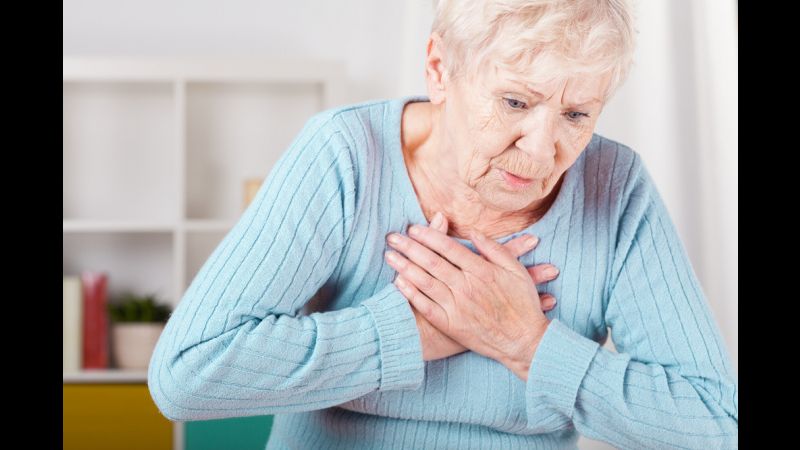As the weather gets colder and winter settles in, it’s not always the cold that has a negative effect on our bodies. Some people actually see more health repercussions from turning UP the heat while indoors. Anyone living with COPD, or chronic obstructive pulmonary disease, might notice that when the temperature dips outside of the house, their COPD flares up.
This is not a coincidence; the heat inside is typically blowing dry air which is not ideal for those living with COPD. Lung experts at the Lung Institute recommend that people with COPD need to “have a regulated amount of humidity in the home to help keep their lungs functioning as optimally as possible.” And when you mix that with the fact that freezing temperatures can be a strain on the body, when you have COPD, the winter can leave you feeling tired, depleted and short of breath.
So, does that mean all is lost for those of us living with COPD in a cold climate during the winter? Definitely not. But it does mean that there need to be extra steps taken both inside and outside of the home in order to have a safe and healthy winter.
Best Climate for COPD
Before we dive into the ways in which you can alleviate COPD symptoms during the winter, it helps to understand the types of climates that are ideal for people living with COPD. According to the Lung Institute, who put together a list of the Best and Worst Places to Live with COPD, having access to hospitals and rehabilitation programs close by should be taken into as much consideration as air quality and climate control.
The top three locations that were identified as having the best climate for COPD, were:
- Fayetteville, Arkansas
- Prescott, Arizona
- Naples, Florida
All three locations were identified because of their relatively mild year-round climates, excellent air quality and community support for people living with COPD in the form of hospitals, rehabs and medical centers that specialize in pulmonology.
Living With COPD Anywhere
Unfortunately, not everyone is able to pick up and relocate to a warmer climate once they are diagnosed with COPD. There are, however, plenty of precautions you can take to help your COPD cope with the cold weather.
- Use a Humidifier. When you have COPD, humidifiers can take a large burden off of your lungs. “About 40 percent humidity is ideal in indoor and outdoor climates,” according to HealthLine.com. You can buy a humidifier that works in conjunction with a central heating system, or buy individual COPD humidifiers that can be moved from room to room. HealthLine also recommends that “regardless of the type of humidifier you choose, be sure to clean and maintain the humidifier regularly. It’s important to follow the manufacturer’s directions, as many humidifiers have air filters that must be routinely washed or replaced.”
- Cover Your Nose and Mouth When Outside. Covering your nose and mouth with a scarf while you are outside during the winter months can help you breathe a bit easier. Essentially, it traps your breath, allowing it to warm up before inhaling and giving your lungs a well deserved break.
- Change Your Air Filters Regularly. If you have a central heating system in your home it’s critical that you change your filters regularly. Neglecting to do so can introduce more dust mites, bacteria and viruses into your home and cause your COPD to flare up. HealthLine recommends that filters be changed once every three months for optimum use.
- Cut Down on Indoor Pollutants. Chemicals from household cleaners and cigarette smoke can create a toxic mix of pollutants for your lungs. A study published by researchers from Johns Hopkins University in the American Thoracic Society journal found that “high indoor temperatures appear to worsen symptoms of chronic obstructive pulmonary disease, or COPD, particularly in homes that also have high levels of air pollutants.” Dr. Meredith C. McCormack, MD, MHS, one of the lead researchers on this study, said that “optimizing indoor climate and reducing indoor pollution represents a potential avenue for improving health outcomes” In layman’s terms: cutting down on indoor pollutants can increase your health, especially if you are living with COPD.
Staying Safe with COPD
No matter how much effort you put into maintaining your health, when you are living with COPD, the reality is that you can experience shortness of breath anytime, anywhere. Investing in a medical alert device from Medical Guardian could one day help to save your life.
With 24/7 monitoring services, Medical Guardian will ensure that help will be able to reach you in a medical emergency, allowing you to catch your breath once more. And thanks to several of our mobile solutions, you can have access to help outside of the house as well. To learn more about our full suite of products and figure out which one is best for you, visit https://www.medicalguardian.com/medical-alert-systems

